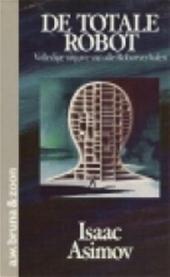What do you think?
Rate this book


524 pages, Hardcover
First published April 9, 1982








«Se si potesse individuare l'origine della loro avversione, la vera origine...»
«Dopo tutti questi anni» disse Li-hsing con tristezza, «voi cercate ancora di trovare motivazioni sensate al comportamento umano. Povero Andrew, non arrabbiatevi, ma questo vostro coraggio non è da uomo, ma da robot.»
{L'uomo Bicentenario.